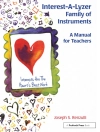During recent years, attempts have been made to move beyond the Eurocentric perspective that characterized the social sciences, especially anthropology, for over 150 years. A debate on the “anthropology of anthropology” was needed, one that would consider other forms of knowledge, modalities of writing, and political and intellectual practices. This volume undertakes that challenge: it is the result of discussions held at the first organized encounter between Iranian, American, and European anthropologists since the Iranian Revolution of 1979. It is considered an important first step in overcoming the dichotomy between “peripheral anthropologies” versus “central anthropologies.” The contributors examine, from a critical perspective, the historical, cultural, and political field in which anthropological research emerged in Iran at the beginning of the twentieth century and in which it continues to develop today.
Table of Content
Introduction
Shahnaz R. Nadjmabadi
PART I: FROM FOLKLORE TO ANTHROPOLOGY: THE PASSAGE
Chapter 1. The Contribution of Foreign Anthropologists to Iranology
Ali A. Bulookbashi
Chapter 2. Storytelling as a Constituent of Popular Culture: Folk Narrative Research in Contemporary Iran
Ulrich Marzolph
Chapter 3. Iranian Anthropology – Crossing Boundaries: Influences of Modernization, Social Transformation and Globalization
Mary Elaine Hegland
PART II: VOICES FROM WITHIN: INSTITUTIONS AND PROFESSIONS
Chapter 4. Anthropology in Post-revolutionary Iran
Nematollah Fazeli
Chapter 5. Making and Remaking an Academic Tradition: Towards an Indigenous Anthropology in Iran
Nasser Fakouhi
Chapter 6. Iranian Anthropologists Are Women
Soheila Shahshahani
PART III: ANTHROPOLOGICAL PRACTICE: CONSTRAINTS AND POSSIBILITIES
Chapter 7. Applied Anthropology in Iran?
Jean-Pierre Digard
Chapter 8. Past Experiences and Future Perspectives of an Indigenous Anthropologist on Anthropological Work in Iran
Mohammad Shahbazi
Chapter 9. Anthropological Research in Iran
Lois Beck
Chapter 10. Being from There: Dilemmas of a ‘Native Anthropologist’
Ziba Mir-Hosseini
PART IV: PAST AND PRESENT PERSPECTIVES: CHALLENGING THE FUTURE
Chapter 11. Usual Topics: Taboo Themes and New Objects in Iranian Anthropology
Christian Bromberger
Chapter 12. Islamophobia and Malaise in Anthropology
Fariba Adelkhah
Chapter 13. Personal Reflections on Anthropology of and in Iran
Richard Tapper
Select Bibliography
Notes on Contributors
Index
About the author
Shahnaz R. Nadjmabadi is a social anthropologist, who worked at UNESCO in Paris from 1977 to 1984. She is a Senior Research Fellow at the Department of Anthropology at the Eberhard Karls Universität, Tübingen (Germany) and a member of the Competence Network Crossroads Asia. Her research is focused on mobility and development in the Iranian coastal areas of the Persian Gulf and the eastern Provinces of Khorassan.












